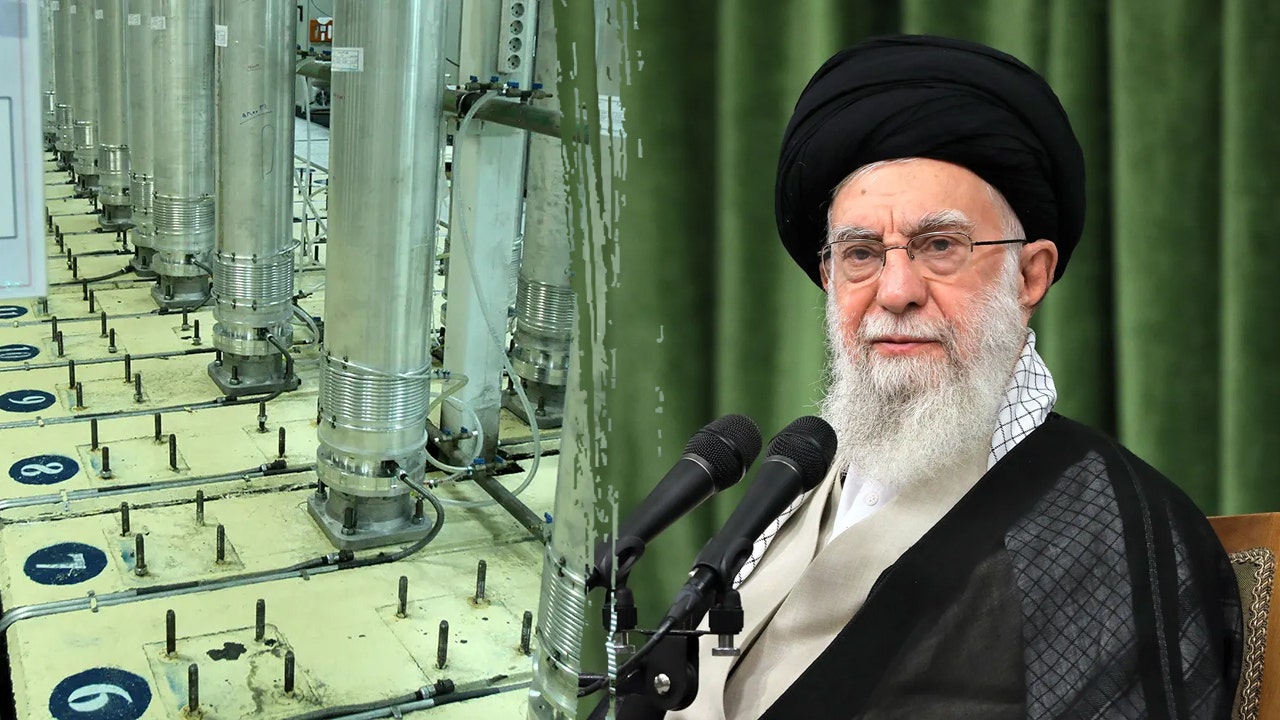The UN watchdog has reported that the time to maneuver on Iran's nuclear program is rapidly dwindling.
Top government officials in Iran hold 'high-level' talks with IAEA chief.

The UN nuclear watchdog's head warned that the opportunity to diplomatically resolve Iran's nuclear program was diminishing.
At the COP29 climate summit in Baku, Rafael Grossi, the director general of the International Atomic Energy Agency, delivered an urgent message in an interview with AFP.
He stated that the international situation is becoming increasingly tense and the margins to maneuver are beginning to shrink, which the Iranian administration must understand.
"It is imperative to find ways to reach diplomatic solutions."

Grossi's upcoming trip to Tehran for high-level meetings with Iranian officials includes technical discussions on Tehran's agreement under a March 2023 Joint Statement to follow IAEA safeguard parameters.
Upon his arrival in Tehran on Wednesday, Grossi met with Behrouz Kamalvandi, the spokesperson for Iran's state atomic energy agency.
Grossi emphasized the importance of making significant progress in implementing the Joint Statement agreed with Iran in March 2023 before his visit to Tehran.
Grossi stated that the IAEA is allowed to inspect all nuclear sites as part of its safeguard responsibilities, but he added, "We require more."
To increase the visibility of Iran's ambitious program due to its size and depth, we must explore possible solutions, the speaker stated.

Since the US withdrew from the Joint Comprehensive Plan of Action (JCPOA) in May 2018, concerns about Iran's nuclear program have persisted, despite the International Atomic Energy Agency's (IAEA) confirmation that Iran was adhering to its nuclear agreements.
According to Reuters, Grossi is predicted to urge Iran to grant greater access to its nuclear facilities and to provide an account for the uranium traces discovered at undeclared locations.
Since Tehran stopped following its commitments under the JCPOA, Iran's nuclear program has been operating without any oversight for months, resulting in an increase in its highly enriched uranium metals to 60% purity levels, which is only a small step away from weapons-grade uranium enriched to 90% purity.
Grossi's trip coincides with a crucial period for geopolitical relations, with President-elect Trump set to assume office in January and adopt a tough stance towards Tehran.
In his first term, President Trump characterized the agreement as a "terrible deal" that was brokered by Secretary of State John Kerry under the Obama administration and signed by Britain, France, Germany, Russia, and China. Trump subsequently withdrew the U.S. from the agreement unilaterally.
Following the U.S. withdrawal, Tehran declared the agreement invalid and stated that it was no longer subject to the international nuclear accord.
Although the US withdrew from the JCPOA, Russia and other international co-signatories urged Tehran to remain committed to the agreement. However, by 2022, Moscow ceased its diplomatic support as tensions with the West intensified due to its invasion of Ukraine.
Grossi told AFP the deal now sits as "an empty shell."

To prevent Iran from achieving its nuclear goals, according to Behnam Ben Taleblu, an Iran expert and senior fellow at the Foundation for Defense of Democracies, it is necessary to abandon the Biden administration's efforts to revive a nuclear agreement and instead adopt Cold War-era strategies of nuclear deterrence.
The nuclear gains made by Tehran under Biden's policy of maximum deference have shut the window for any meaningful engagement, even if transactional, with Tehran. The incoming Trump administration will face an increasingly risk-tolerant Islamic Republic that is either on the nuclear threshold and eager to exploit this status or one that has weaponized.
"To effectively challenge a regime, it is necessary to move beyond Washington's fixation on a negotiated settlement and utilize other means of national strength."
The IAEA chief stated that he is not concerned about the possibility of another Trump presidency, even though he must navigate a tense geopolitical environment with the West's unified stance against Russia and Iran, as well as the ongoing conflicts in Ukraine and Israel's fight against Tehran-backed proxies.
He stated that he had previously collaborated with the first Trump administration and their relationship was successful.
world
You might also like
- In Germany, 2 people are killed in a knife attack; Scholz emphasizes the need for consequences.
- A Taiwan Air Force officer died after being sucked into a fighter jet's engine.
- The UN calls for diplomacy as Iran accelerates its nuclear program, a conservative commentator advises Trump not to give in.
- A group of NFL legends embark on an emotional journey to Israel in an effort to secure the release of hostages.
- Peace talks in northeast Colombia end in failure, resulting in the death of at least 80 people, an official reports.



















